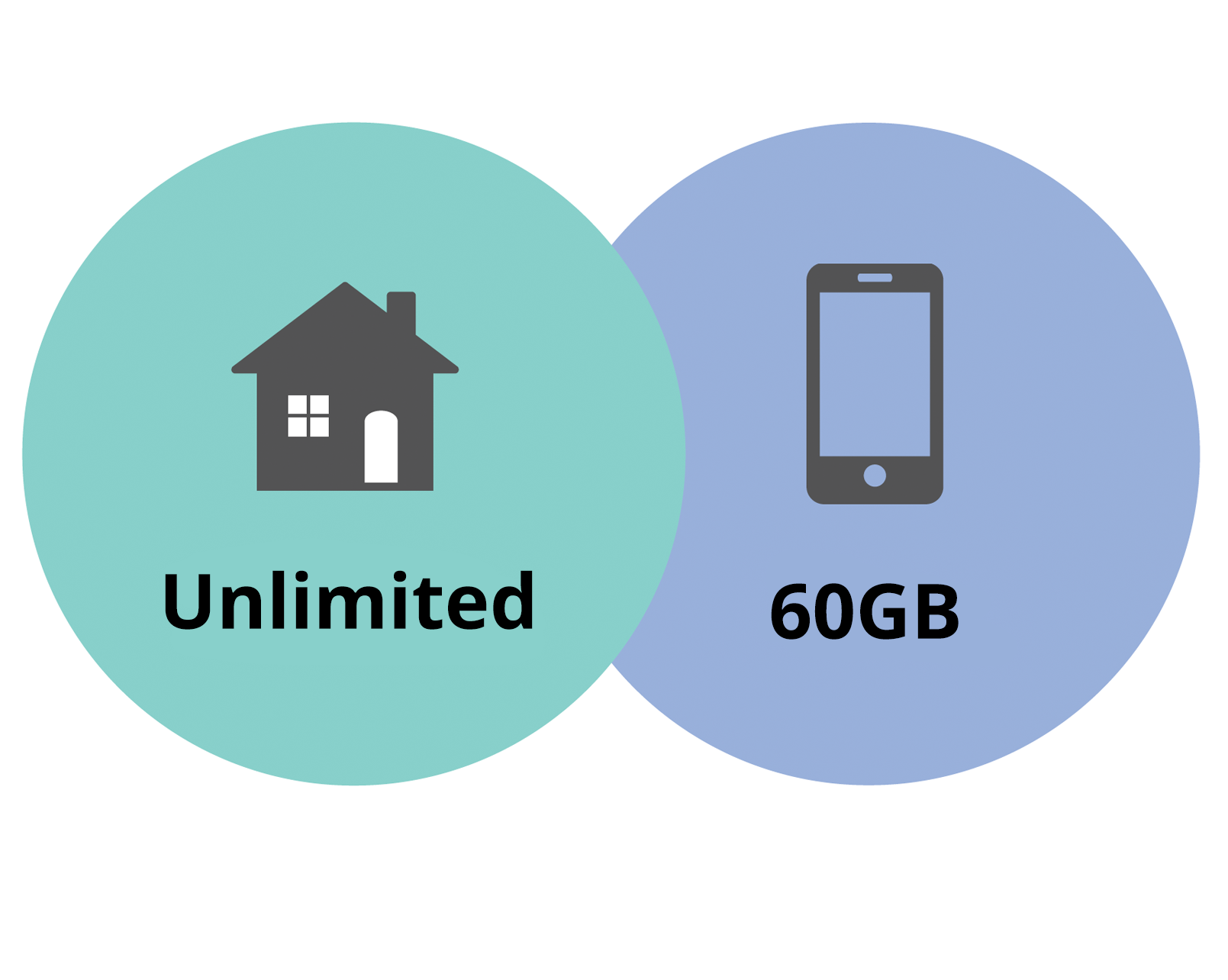Managing your data
Here are some top tips for saving money on your home and mobile data plan, plus ways to avoid extra charges.
Tracking how much data you use
Being aware of how much data you use each month lets you adjust your internet data plan, and maybe save some money. For instance, if you bought a large plan, but realise you only use a small amount of data, you may change to a cheaper plan that has less data.
You can see how much data you've used each month by using a tool from your internet service provider.
- Home internet plans usually offer a special website to visit, where you can monitor your data use.
- Mobile phones can install a special app to monitor data and provide alerts when you are approaching your data limit. Many phone providers pre-install this app on your phone for you.
- These tools don't always show up-to-the-minute data use. They may lag a day behind, so may not be 100% accurate.

How can I switch my mobile phone from mobile data to Wi-Fi?
Using a mobile phone's Wi-Fi feature means it won't take data from the mobile data network. That means any web browsing or other activities you do on your mobile phone won't count against your mobile data allowance.
To use your mobile phone's Wi-Fi feature:
- enable Wi-Fi in your phone's settings
- select your home Wi-Fi network and enter the password (your password can normally be found underneath your router box or on a special card given to you by the internet provider)
- now each time you come home, the phone will connect to the Wi-Fi automatically.
What happens if I use too much data?
Home and mobile internet plans provide a set amount of data each month, although some home internet plans can offer unlimited data. The bigger the monthly data allowance, or the faster the speed of delivery, the more expensive the plan.
The penalty for using more data than your data plan allows varies depending on your provider and also whether it's a mobile data account or home internet account. Using too much data on home internet may result in:
- a slower connection speed, which means you may not be able to play video and pages from the internet may be slow to appear on your device
- your usual internet speed will return when your billing cycle resets.
Using too much data on mobile internet may result in:
- for pre-paid data – you will not have mobile internet on your phone until you buy more data
- for post-paid data – you will most likely have to pay for the extra data you used. The amount could be a few dollars, or it could get very expensive, depending on your provider.
How can I save money?
Because a mobile phone can use both Wi-Fi and mobile data, you can take advantage of this to limit the cost of your mobile data.
- If you are at home most of the time, and your phone is on Wi-Fi, then you will probably only need a very small mobile data plan.
- If you are always out and about, you can keep an eye on your data use via a special program called an app. Some phones come with an app installed, or you can download this type of app from the internet once you have a plan in place.
- Avoid data-hungry activities like uploading photos or watching movies while out and about. Do these at home when the phone is back on Wi-Fi.
- A big home internet data plan plus a small mobile plan is usually cheaper than just a big mobile data plan.
Data-saving checklist
There is a lot to remember if you want to save money on data. Here's a quick summary:
- Mobile data is more expensive than home internet data, so connect your mobile devices to Wi-Fi when at home and use mobile data only when out and about.
- Keep track of your data to avoid using more than your allowance, and to help you decide what kind of data plan you need.
- Changing up to a more expensive data plan is usually free.
- Changing down to a cheaper data plan usually involves paying a penalty, unless it is a pre-paid plan.
- You can also use free Wi-Fi from libraries, cafés, or shopping centres when you are out and about. Public Wi-Fi is less secure than your home Wi-Fi network, so don't use it for anything private or which requires your personal information or passwords.